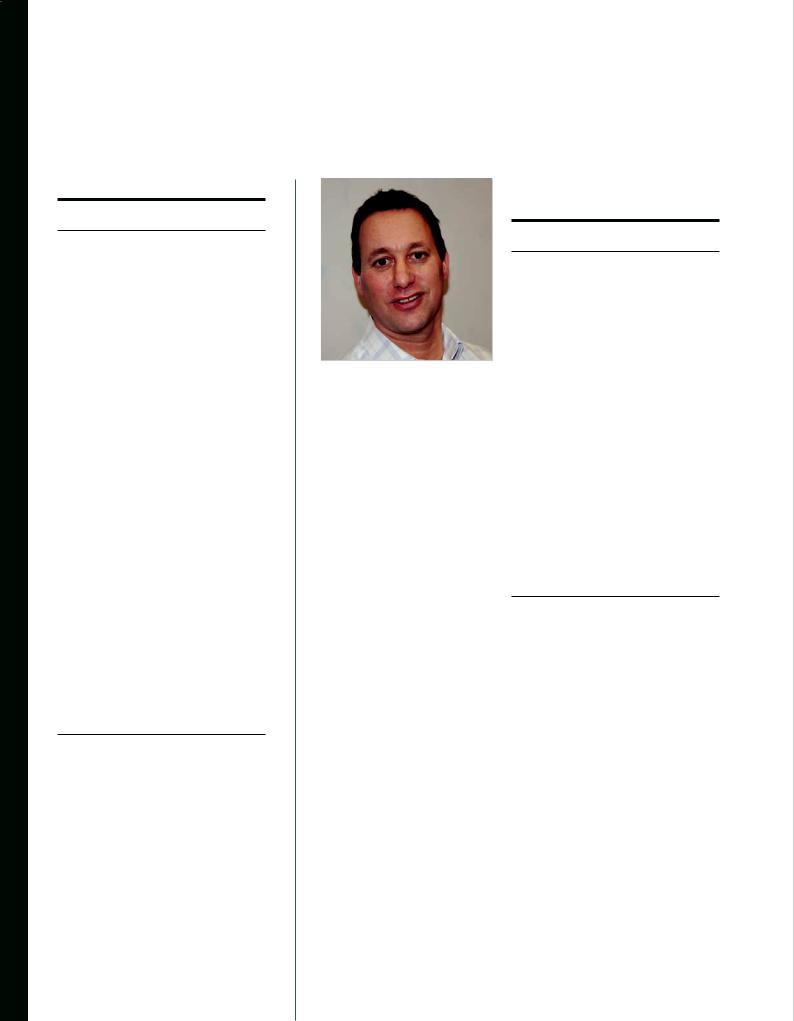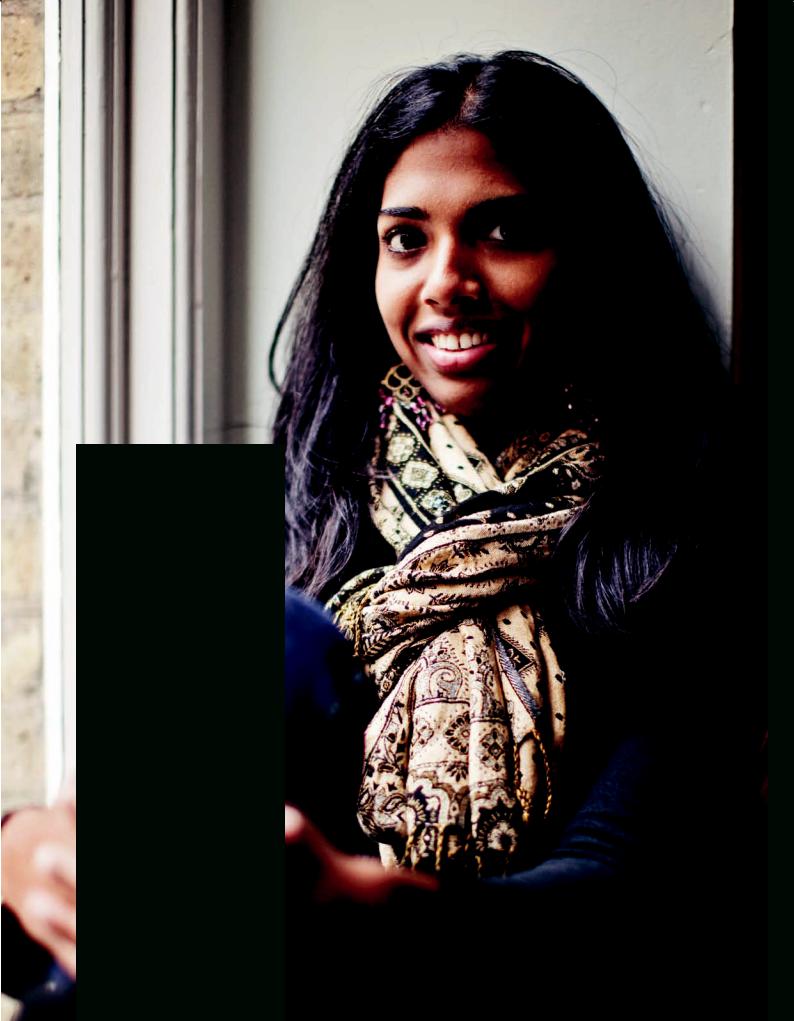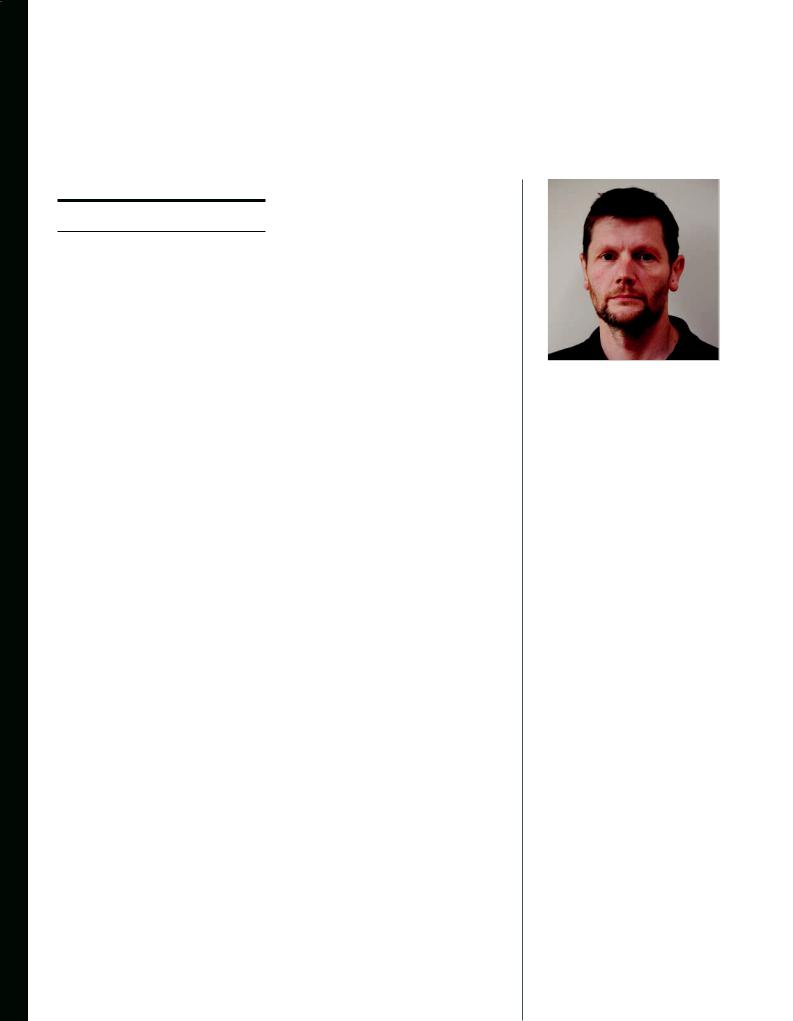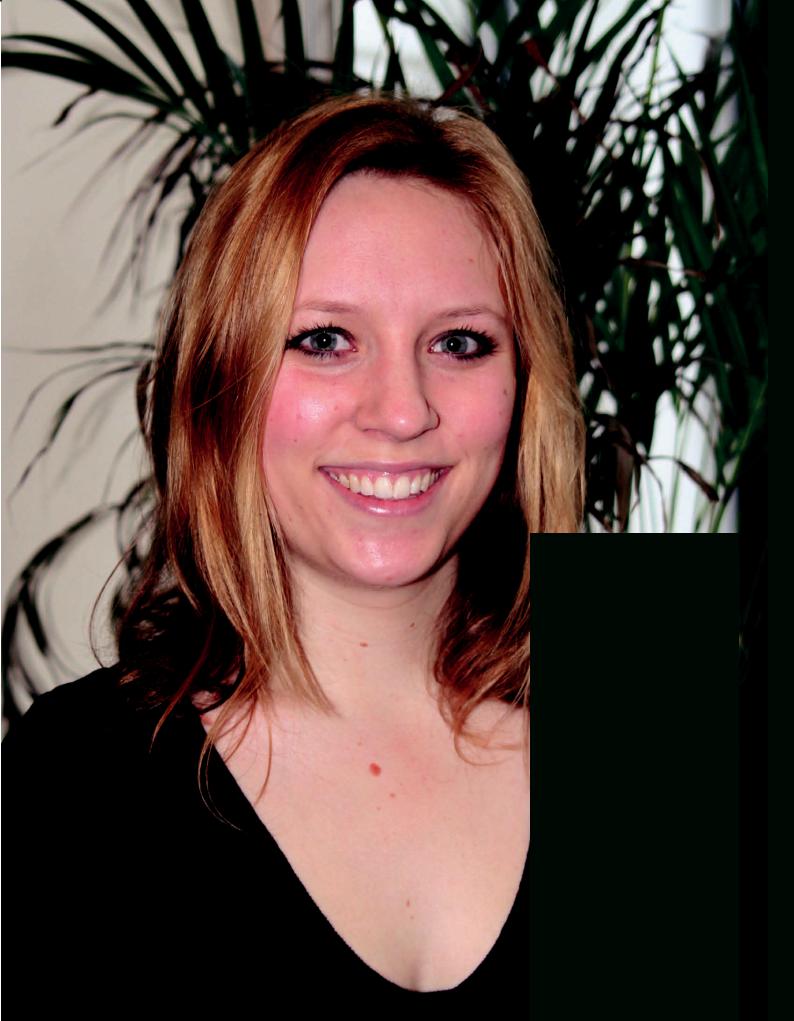
89961
.pdf
Medicine 99
And afterwards...
Why study medicine?
What can I do afterwards?
•Medicine is an exciting and intellectually challenging profession: the nature of the field is such that you always need to be up-to-date with the latest developments.
•You will meet an interesting variety of people in both colleagues and patients and you are able to see the result of your hard work in your patients.
•Compared with many other professions, medicine and dentistry offer good job security,
a good salary and scope for career progression.
•It offers variety: you can acquire different specialisations, work with a range of other professionals, and take advantage of travel opportunities.
•It’s not all hard work: medicine and dentistry students know how to have a good time and the nature of the course means you’ll make some great, lifelong friendships.
What our graduates do next
Graduates from Queen Mary’s School of Medicine go on to work as doctors within the NHS – unless they choose to follow other career pathways such as medical research.
The national 2011 destination survey confirmed that 99 per cent of MBBS Medicine (graduate entry) students were working as Foundation Doctors six months after graduation earning a median starting salary of £29,000.
How we support you
Throughout the course, you will have access to a bespoke careers programme which includes a medical careers fair, a series of talks by consultants from a variety of specialties and a range of preparatory workshops prior to the assessment processes for your first job as a medical professional.
You are encouraged to build your work experience throughout your period of study, through, for example, our QM Projects work experience scheme (which places students on challenging projects in local community organisations), QM Temps job agency, Experience Works events and QMSU volunteering services. Over 800 vacancies are available to browse on the QM JobOnline vacancy site.
Queen Mary’s extensive campus also provides over 1,200 on-campus jobs and volunteer opportunities ranging from Hospital Volunteer to Gym Instructor and from Science Ambassador to Student Mentor.
profile alumni
Kelli Torsney
Studied: Medicine (2012)
Currently: FY1 Chelsea and
Westminster Hospital
Did you enjoy your time at Queen Mary? I cannot recommend it highly enough. Located in the City and East End of London, means you are exposed to a wide diversity of people and illnesses, providing you with a great insight into global health. The East End is also a fantastic place for socialising and as the only campus university in London you will automatically become part of a big family where everyone looks out for each other.
How did your time at Queen Mary prepare you for work? I found the support and mentoring system at Barts invaluable, especially in the run up to exams and when it came to my final year when I was applying for jobs. With the support and guidance from my mentor and the medical school staff, I had the help and advice I needed to land the foundation year job I wanted. Barts and The London not only gives you the knowledge and clinical skills
to pass your exams, but most importantly it trains you to become an excellent doctor.

100 Medicine
Medicine
Degree programmes
Medicine
A100 MB BS (five years)
We use the UK Clinical Aptitude Test (UKCAT) to assess your suitability for studying medicine. You should sit the test in the year that you apply to university, before the UKCAT deadline.
A-level: AAAb with chemistry and biology at AS-level, and at least one at A-level. If both subjects not taken to A-level, a second science A-level is required. If you are planning to drop either chemistry or biology before A2, you must attain a B grade in that subject at AS-level. If A-level maths and further-maths are offered in the same sitting, further maths is acceptable at AS-level only.
IB: 38 points overall with three subjects, including chemistry or biology and one other science or mathematical subject at HL, and three subjects at SL including chemistry or biology if not offered at the HL.
Excluded subjects: General studies and critical thinking
Find out more about the programme and entry requirements at www.qmul.ac.uk/A100
The five-year programme leading to Bachelor of Medicine and Bachelor of Surgery is designed to give you appropriate knowledge and understanding of medical, scientific and clinical principles so that you are able to apply them to the prevention, cure and alleviation
of disease.
profile staff
Dr Adam Feather
Senior Lecturer in Medical Education
and Head of Final Year
Why are you passionate about teaching your subject? Teaching finalists is always challenging but incredibly enjoyable and rewarding. Our students are very bright, inquisitive, eager to learn, and are receptive to good teaching. I always hoped that when I qualified I would be able to make the undergraduate experience better and I hope in some small way that I have.
What makes the School different?
East London and the surrounding region is one of the most unique and interesting places to study medicine in the UK. This is a fantastic school, born from the oldest medical school in England (The London) and the oldest Hospital (Barts). We also have access to the superb campus at Mile End, the ever improving school resources at Whitechapel, and the largest, new hospital in Europe.
What are your academic interests?
My interests are centred on assessment and clinical skills. I have also published ten
undergraduate text books, and have been lead author on chapters in several text books. I am responsible for the most popular, free medical undergraduate website in the UK: http://fdf.smd.qmul.ac.uk
Medicine (Graduate Entry
Programme)
A101 MB BS (four years)
You may apply in the final year of your degree and be predicted/have achieved at least an upper second class honours degree in a science/health-related subject. There must have been a significant component of biology and chemistry in your degree programme, at least equivalent to AS-level.
Alternatively, you must have achieved grades of at least BB in A-level biology and chemistry prior to starting your degree, or you must be completing or have completed AS-levels in chemistry and biology and be predicted/have achieved B grades in both.
Find out more about the programme and entry requirements at www.qmul.ac.uk/A101
The four-year programme leading to the Bachelor of Medicine and Bachelor of Surgery is designed to be a fast-track route for graduates who obtained good degrees in science or health-related subjects. The first year of study is based on the first two years of the five-year programme.

Medicine 101
Latha Bonthala
MBBS Medicine (A100), fourth year
“I chose to study at Barts and The London because I had heard very positive comments about the quality of the teaching and the down to earth atmosphere and attitudes of both staff and students. When compared to other medical schools in London, Barts seemed like the best place to be!
“The Medicine in Society placements mean you are placed in the community right from the start, which is both enjoyable and incredibly beneficial. Also, the regular in-course assessments were very useful in consolidating all the information learnt during the year, particularly in the run-up to the end
of year examinations.
“One thing there is no shortage of in east London is a social life! There is always something to do, and always people ready to celebrate successes in the recently renovated Griffin Students’ Union building. The leisure and recreational facilities are great at Queen Mary’s Mile End campus. There is a good choice of places to unwind whichever way you want to, for example exercising in the Qmotion gym or relaxing with friends by the canal.”

102 Dentistry
Dentistry
Improving appearance and function has a real and positive impact on the quality of people’s day-to-day life. However, dentistry is about much more than fillings and scaling teeth: it is a major branch of medicine, encompassing teeth and all the related structures of the head and neck.
You will study the care of the mouth, including the prevention and treatment of the dental diseases, screening for oral cancers, managing trauma (eg the results
of road accidents or violence), orthodontics and oral surgery.
As a dentist, you will need to be versatile and multi-talented. You must be academically gifted, able to undertake precision work in adverse conditions, and an excellent communicator, who can explain options and procedure to your patients, and reassure those who are frightened. You must also enjoy science: dentistry is a constantly evolving profession and lifelong learning is essential.
Why study dentistry at Queen Mary?
Barts and The London School of Medicine and Dentistry brings together two venerable teaching institutions: St Bartholomew’s Hospital, which dates back to 1123, and The London Hospital Medical College, founded in 1785, the oldest medical school in England and Wales. The hospitals lie in two very different parts of London, the City and the East End, exposing you to a greater diversity of people and their health problems than at almost any other medical and dental school in the UK.
The Dental School opened in 1911. We aim to offer you the very
best student experience and will be moving into brand new facilties at the Royal London Hospital in 2014. You will be taught by experts in their field who are passionately engaged
with their subject, and this is reflected in the high satisfaction rates among our dental students: in the most recent National Student Survey (NSS 2012), 98 per cent of our students were satisfied overall with the quality of the course and 98 per cent said that the course was intellectually stimulating.
We are a friendly and supportive School, with exceptionally good pastoral care – in the NSS 2012, 98 per cent of students said they were able to contact staff when they needed to. Our curriculum is modern, integrated and well paced, and our location in east London means that you’ll serve a population of great diversity and encounter a
wide range of disease, including some of the more unusual oral cancers.
The Dental School contains a clinical skills laboratory, which closely simulates the real clinical experience and is an invaluable learning facility, helping new students prepare for patient care work. You will also be able to work in our fantastic new outreach clinics at Barkantine, near Canary Wharf, and at Southend-on- Sea.
Assessment
A range of methods is used to assess your progress and acquisition of knowledge and skill, including continuous and annual assessments; formative assessments (which do not count towards your final mark); and Objective Structured Clinical Examinations (which assess your clinical and communication skills).
We are moving away from the traditional ‘finals’ examination and you accumulate a varying proportion of your marks as you progress through the programme. All assessments are focused on you demonstrating the integration of knowledge and its application in practice. Prompt and effective feedback is always provided following assessment.
Our teaching
With support from tutors, you are encouraged to develop an independent attitude to learning.
Important features of our teaching include: small group teaching, practical clinical skill sessions; lectures and symposia communication skills training,
and an extensive outreach teaching programme.
Admissions
Admission is by UCAS form and interview.
Academic enquiries
School of Medicine and Dentistry Tel: +44 (0)20 7882 8478 email: smdadmissions@qmul.ac.uk www.smd.qmul.ac.uk
General enquiries
Enquiries Hotline (UK callers only): 0800 376 1800
Tel (international students): +44 (0)20 7882 5511
email: admissions@qmul.ac.uk

Dentistry 103
And afterwards...
Why study dentistry? What can I do afterwards?
Dentists have many career options open to them. They can work in general practice, both for the NHS or privately, in the community or in the armed forces, at home or overseas. As well as becoming a general dental practitioner, all sorts of other openings exist, from oral and maxillofacial surgery to orthodontics; and from children’s dentistry to prosthodontics (that’s
implants, false teeth, etc). You could specialise in periodontology (gum disease), restorative dentistry (fillings, crowns and bridges) – or become a lecturer and researcher in any of these. Oral pathology – analysing lumps, bumps and so on for cancers and other diseases – is another possibility. Dentistry can also be a flexible career for those wishing to take time out, to work irregular days or hours, or for those who wish to work in more than one location.
•It’s a challenging profession which will see you learning new skills throughout your career.
•You will meet an interesting variety of people and there is real job satisfaction.
•Compared with many other professions, dentistry is a wellrewarded career, with good job security and prospects.
•It’s practical: as well as being academic and interested in science, you will need to work with your hands too.
•It offers variety: you can acquire different specialisms, work with a range of other professionals and take advantage of travel opportunities.
What our graduates do next
Dental graduates from Queen Mary’s School of Medicine and Dentistry initially go on to work as Dental Foundation Trainees, after which they either remain in the
NHS or move to the private sector.
The national 2011 destination survey confirmed that 100 per cent of BDS Dentistry Graduates were working as Dental Foundation Trainees six months after graduation
– with a median starting salary of £30,000.
How we support you
Throughout the course, you will have access to a bespoke careers programme. This includes specific workshops, talks and practical sessions to prepare you for the assessment centre when applying for your first job as a dental professional, as well as looking at specialty options for the future.
You are encouraged to build your extra-curricular work experience throughout your period of study, through, for example, our QM Projects work experience scheme (which places students on challenging projects in local community organisations), QM Temps job agency, Experience Works events and QMSU volunteering services. Over 800 vacancies are available to browse on the QM JobOnline vacancy site.
profile alumni
Jonathan Lewney
Graduated 2012,
Currently: I recently graduated as a dentist from Barts and The London and am now completing my first year as a foundation dentist.
What were the highlights from your time here? An innovative curriculum, huge diversity in the patients I treated and everything London has to offer so close by are some of the major plus points of studying dentistry at Barts and The London. The real highlight of the School, however, is its people; clinical tutors and academic staff, nurses and the student support staff all did so much to make my time there as rewarding and enjoyable as possible.
Do you feel the School prepare you well for practice? The real test of good dental school is its graduates and the many friends I made during my time at Barts and the London all agree that we’ve been extremely well prepared for this first year in practice. This feeling is echoed by many of the dental foundation trainers who have taken on Barts graduates and, perhaps most importantly, my patients
seem really happy with the care I’m providing in spite of my being newly qualified. Deciding which dental school to train at was difficult, but now that I’m qualified I feel sure I made the right choice.

104 Dentistry
Dentistry
Degree programmes
Dentistry
A200 BDS (five years)
We use the UK Clinical Aptitude Test (UKCAT) to assess your suitability for studying dentistry. You should sit the test in the year that you apply to university, before the UKCAT deadline.
A-level: AAAb with chemistry and biology at AS-level, and at least one at A-level. If both subjects not taken to A-level, a second science A-level is required. If you are planning to drop either chemistry or biology before A2, you must attain a B grade in that subject at AS-level. If A-level maths and further-maths is offered in the same sitting, further maths is acceptable at AS-level only.
IB: 38 points overall with three subjects, including chemistry or biology and one other science or mathematical subject at HL, and three subjects at SL including chemistry or biology if not offered at the HL.
Excluded subjects: General studies and critical thinking
Find out more about the programme and entry requirements at www.qmul.ac.uk/A200
The five-year course leading to Bachelor of Dental Surgery has been redesigned in 2012 to allow a modern curriculum which provides a globally aware, student-focused, integrated, multidisciplinary approach to acquisition and
use of knowledge, which:
•promotes oral health and provides patient-centred, evidence-based care
•develops knowledge, skills values, attributes and behaviours of a dental professional
•recognises the need for lifelong learning and professional development
•promotes the awareness of knowledge creation.
profile staff
Tim Friel
Senior lecturer
Tell us about your background
I qualified in 1988 from the London Hospital and completed an MSc in Prosthetic Dentistry at the Eastman Dental Institute in 1994. Since 1989 I have worked in a variety
of Community Dental posts and am a recognised specialist in 'Prosthodontics' and 'Special Care Dentistry'.
What are your areas of teaching and clinical interest? My areas of clinical interest include all aspects of removable and fixed prosthodontics, including implant treatment and dental care of older people. I provide extensive undergraduate teaching and run the first year course in Removable Prosthodontics for the MA Clinical Dentistry. My teaching interests include the use of video in e-learning and the development of web-based learning material.

Dentistry 105
Vikki Argent
BDS Dentistry (A200) fourth year
“I chose Barts and The London for a number of reasons: it always scores really well in the league tables, and is only two hours from home for me so I can go home for a weekend if I want. At the open day
I was really impressed with the campus and the facilities, but more so with how friendly and helpful all the people were!
“It’s got a really nice intimate environment with only 80 students, (including those on the Graduate Entry Programme) so everyone knows everyone and is really supportive of each other.
“The clinical teaching staff are superb, you have a different tutor every year so you get a wide range of help and experience.
“The location is excellent, we have a local cinema, some bars and pubs and some good restaurants in Brick Lane as well as Spitalfields and Petticoat Lane markets. For everything else it’s a 20-minute tube ride to central London or a 10-minute DLR journey to the Docklands.”

106 Biological Sciences
Science and Engineering
Biological Sciences |
page 108 |
•Biochemistry
•Biology
•Biomedical Sciences
•Genetics
•Medical Genetics
•Zoology
Chemical Sciences |
page 114 |
•Biochemistry
•Chemistry
•Pharmaceutical Chemistry
•Pharmaceutical Chemistry with a Year in Industry
Design |
page 120 |
•Engineering, Design and Innovation
•Materials and Design
Electronic Engineering |
|
and Computer Science |
page 124 |
•Electrical and Electronic Engineering
•Electronic Engineering
•Electronic Engineering with Industrial Experience
•Electronic Engineering and Telecommunications
•Electronic Engineering and Computing
•Audio Systems Engineering
•Multimedia and Arts Technology
•Multimedia and Arts Technology with Industrial Experience
•Information and Communication Technologies
•Information Technology Management for Business (ITMB) with Industrial Experience (subject to approval)
•Computer Science with Business Management
•Computer Science with Business Management and Accounting
•Computer Science
•Computer Science with Industrial Experience
•Computer Science and Multimedia
•Computer Science and Mathematics
Engineering |
page 132 |
•Aerospace Engineering
•Mechanical Engineering
•Medical Engineering
•Sustainable Energy Engineering
Materials |
page 136 |
•Materials Science and Engineering
•Dental Materials
•Medical Materials
Mathematical Sciences |
page 140 |
•Mathematics
•Pure Mathematics
•Mathematics and Statistics
•Mathematics with Business Management
•Mathematics, Business Management and Finance
•Mathematics with Finance and Accounting
•Mathematics, Statistics and Financial Economics
•Mathematics
•Mathematics with Statistics
Physics and Astronomy |
page 146 |
•Physics
•Astrophysics
•Physics with Particle Physics
•Theoretical Physics
Psychology |
page 150 |
• Psychology |
|
Science and Engineering |
|
Foundation Programme (SEFP) |
page 154 |

Science and Engineering 107
Science and Engineering
Quick guide to entry requirements by subject area
Subject area |
2014 tariff |
Additional information |
Excluded subjects |
|
|
|
|
Biological Sciences |
AAB-BBB |
AAB for B990 Biomedical |
General studies |
|
(340-300 points) |
Sciences and C800 Psychology, |
|
|
IB: 35-32 points overall |
ABB for C100 Biology, C300 |
|
|
|
Zoology and C700 Biochemistry |
|
|
|
and BBB for C400 Genetics |
|
|
|
|
|
Chemical Sciences |
AAB-BBB (340-300 points) |
|
General studies |
|
IB: 35-32 points overall |
|
|
|
|
|
|
Design |
AAA-BBB |
Typical offer will be BBB for the |
General studies, |
|
(360-300 points) |
three-year programme and AAA |
critical thinking |
|
IB: 36-32 points overall |
for the four-year programme |
|
|
|
|
|
Electronic Engineering |
AAB-BBB |
Typical offer is BBB for all three- |
General studies, |
and Computer Science |
(340-300 points) |
year programmes with the |
critical thinking |
|
IB: 34-32 points overall |
exception of GG41 which is AAB. |
|
|
|
Typical offer is ABB for all four- |
|
|
|
year programmes |
|
|
|
|
|
Engineering |
AAA-BBB (360-300 points) |
Typical offer will be BBB for three- |
General studies, |
|
IB: 36-32 points overall |
year programmes and AAA for |
critical thinking |
|
|
four-year programmes |
|
|
|
|
|
Materials |
AAA-BBB |
Typical offer will be BBB for three- |
General studies, |
|
(360-300 points) |
year programmes and AAA for |
critical thinking |
|
IB: 36-32 points overall |
four-year programmes |
|
|
|
|
|
Mathematical Sciences |
AAB (340 points) |
|
General studies, |
|
IB: 36 points overall |
|
critical thinking |
|
|
|
|
Physics |
AAB-ABB |
Typical offer will be ABB for three- |
General studies |
|
(340-320 points) |
year programmes and AAB for |
|
|
IB: 34-30 points overall |
four-year programmes |
|
|
|
|
|
Psychology |
AAB (340 points) |
|
General studies |
|
IB: 35 points overall |
|
|
For further information and advice on entry requirements please contact:
The Admissions Office Tel: +44 (0)20 7882 5511, Freephone (UK callers only): 0800 376 1800, Fax: +44 (0)20 7882 5588, email: admissions@qmul.ac.uk

108 Biological Sciences
Biological Sciences
Do you have a keen interest in the ‘how’ and ‘why’ questions in life? Are you interested in the likely impact of global warming on rare species? Do you want to learn about chemical reactions that occur inside the cells of the body?
If so, then a degree in biology may be the degree for you. The biological sciences cover a huge range of subjects. In biomedical sciences you’ll learn about the biological science that underpins modern medicine. Or you might decide to study general biology, where you will be taught how animals evolved and how ecosystems function, or zoology, where you can learn about the incredible array of animal life on earth, and how different species interact with each other.
Why study biological sciences at Queen Mary?
The School of Biological and
Chemical Sciences (SBCS) consistently performs well in student surveys and newspaper league tables. In the most recent National Student Survey (NSS 2012), Queen Mary was placed equal first in London among the major universities. External examiners have praised the quality of our teaching: our Biomedical Sciences programme was described as "renowned for its high standards of academic rigour and high standards of teaching", while other programmes were praised for students' "in-depth understanding of the discipline".
Our School is distinguished by highcalibre academic staff who generate a vibrant research culture and produce work that appears in highimpact multidisciplinary journals (eg Nature and Science) and other toprank specialist journals. The results of the 2008 RAE confirmed the School's position among the UK's leading centres for biological
sciences, with 85 per cent of our outputs assessed as being of international quality. In recent years we have focused on recruiting enthusiastic research-oriented staff.
The School recently benefited from over £1m investment in state-of-the- art equipment for cell biology, structural biology and aquatic biology. The School has a Bioinformatics Hub (shared with Computer Sciences) and the College Genome Centre provides further specialist resources for genomics and bioinformatics. Some of our academic staff are based at The River Laboratory (Wareham, Dorset) and its research facilities are available for use by our students.
Assessment
For all programmes you must take 120 credits (normally eight modules) in each academic year. Each module is assessed through theory examinations (typically accounting for 75-80 per cent of the final mark) and coursework (for example, practical reports, field course reports, essays, problem sheets, online exercises and tests). Examinations normally last two and a half hours for first and second years and three hours for final-year papers. Finalyear students undertake a research project/investigative project worth
15 or 30 credits.
Our teaching
All our programmes involve a mixture of classroom activities and laboratory work. A variety of teaching styles are employed, which vary slightly among modules and
programmes. Most material is delivered via lectures. Typically, you would have two lectures per day. Lectures are backed up with smallgroup tutorials and workshops, where you have the opportunity to ask, in a relatively relaxed and small group setting, about material in lectures, to go through problems and practise past exam papers.
A typical weekly workload would be:
•eight one-hour lectures
•9-12 hours of practical laboratories or workshops
•18-20 hours of private study/coursework.
Admissions
Admissions is by UCAS form. Your application will be assessed on the basis of your personal statement, UCAS reference and predicted grades. Interviews are not usually required.
Academic enquiries
School of Biological and Chemical Sciences
Tel: +44 (0)20 7882 3200/3014 email: sbcs-admissions@qmul.ac.uk www.sbcs.qmul.ac.uk
General enquiries
Enquiries Hotline (UK callers only): 0800 376 1800
Tel (international students): +44 (0)20 7882 5511
email: admissions@qmul.ac.uk
